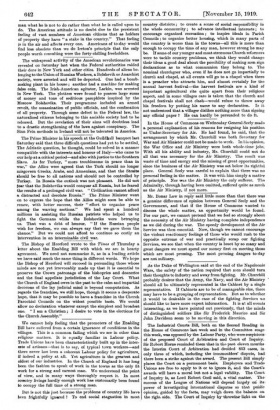But is not this just because the problems of country
life have been frightfully ignored? To end social stagnation in most country districts ; to create a sense of social responsibility in the whole community ; to advance intellectual interests ; to encourage organized recreation ; to inspire ideals in Parish Councils ; to organize better housing, which in many parts of the country is worse than in the towns—all this is more than enough to occupy the time of any man, however strong he may be. If some of our younger and most strenuous Church reformers were to tackle country problems, we think they would change their ideas a good deal about the possibility of making men sign declarations as to what communion they belong to. The nominal churchgoer who, even if he does not go impartially to church and chapel, at all events will go to a chapel when there is a preacher who attracts him, and almost certainly for the annual harvest festival—the harvest festivals are a kind of important agricultural rite quite apart from their religious aspect, and in some villages care is taken that the church and chapel festivals shall not clash—would refuse to throw away his freedom by putting his name to any declaration. Is it not understood that a villager dislikes nothing more than signing any official paper ? He can hardly be persuaded to do it.






































 Previous page
Previous page